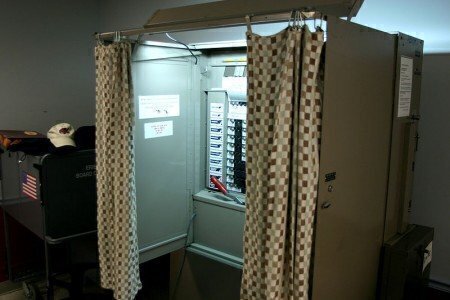Arguing that North Carolina officials are well on their way toward fully carrying out a federal appeals court ruling that nullified five state restrictions on voting rights, the Obama administration and advocacy groups urged the Supreme Court on Thursday to leave the lower court ruling intact.
 The state of North Carolina has asked the Justices to suspend a ruling on July 29 by the U.S. Court of Appeals for the Fourth Circuit. That ruling said the state legislature deliberately targeted voting practices used most often by blacks to stem the rising political clout of minority citizens. Among the tougher restrictions were those that took away the kinds of ID that blacks might be more likely to have.
The state of North Carolina has asked the Justices to suspend a ruling on July 29 by the U.S. Court of Appeals for the Fourth Circuit. That ruling said the state legislature deliberately targeted voting practices used most often by blacks to stem the rising political clout of minority citizens. Among the tougher restrictions were those that took away the kinds of ID that blacks might be more likely to have.It is uncertain, at this point, whether the state will be able to gain the necessary votes of five Justices to postpone the Circuit Court ruling. With an eight-member Court, even if all four of the more conservative Justices voted for a delay, there would still have to be a fifth vote from among the Court’s four more liberal members.
But the Circuit Court ruling’s finding of intentional race bias in the state legislature’s passage of the photo ID requirement and other mandates for voters would be likely to deter any of the Justices in that bloc from allowing the restrictions go back into effect.
Working against support for the state from perhaps any of the Justices is the fact — prominently emphasized by the new briefs filed Thursday — that lawyers for North Carolina had told the Circuit Court that they would be able to implement any order on voting procedures in time for the November elections, so long as it emerged by the end of July — as the Circuit Court ruling did.
Both the administration’s brief (found here) and the separate brief of civil rights and voting rights groups (found here) contended that it would only introduce new confusion among North Carolina voters if the appeals court decision were now put on hold. The advocacy groups’ brief spelled out the details of a series of steps that state and county officials already have taken to implement the Circuit Court ruling.
For example, that brief noted that officials in 99 out of the state’s 100 counties have made arrangements to have a 17-day early voting period, instead of the ten-day period the state law would have permitted. Blacks are active users of early voting opportunities. The brief also noted that state officials have already held a two-day training session for voting officials, and have sent out mailings to alert officials of what the Circuit Court ruling requires, with assurances of its implementation.
Both briefs dispute the state’s argument that the Circuit Court ruling adopted a new standard of intentional race bias in voting that would endanger photo ID laws across the nation. The North Carolina law, the two new briefs contended, goes further than any of the other laws to curtail voting by blacks. (The state’s argument on the discriminatory intent standard did draw the support, in an amicus brief filed by two conservative advocacy groups — Judicial Watch and the Allied Educational Foundation. That brief is here. It asserted that the standard set by the Circuit Court will imperil many voting laws across America.)
Both of the new briefs for the challengers to the North Carolina law contended that the Supreme Court did not settle the legality of laws like North Carolina’s when, eight years ago, it upheld a photo ID law in Indiana. That case did not involve any claim of intentional race bias, the challengers said.
Neither brief responded directly to the argument of the state’s lawyers that the Supreme Court itself had encouraged states to adopt new voting regulations when it lifted federal controls on some states power to pass voting laws in the 2013 decision in Shelby County v. Holder, nullifying a key provision of the 1965 Voting Rights Act.
The Obama administration brief, overall, was focused on specific legal arguments for keeping the Circuit Court ruling intact, while the advocacy groups’ brief put heavier stress on what North Carolina itself is doing to carry out that decision.
There is no timetable for the Supreme Court to act on North Carolina’s plea, although the need for state officials to know what is required of them becomes more pressing as time passes in the remaining weeks before the November 8 election — especially, with the start of early voting.
North Carolina may have an opportunity to file a reply brief before the Court acts.
The state’s lawyers, besides asking that the Court put the Fourth Circuit Court ruling on hold until the state can file a petition for review, also asked the Justices to consider turning the pending application into a petition for review, and going ahead to grant it. Neither of the new briefs responded to that suggestion, but both did say there are no realistic chances that the Court would grant review when a petition is filed.
Legendary journalist Lyle Denniston is Constitution Daily’s Supreme Court correspondent. Denniston has written for us as a contributor since June 2011. Denniston has covered the Supreme Court since 1958. His work also appears on lyldenlawnews.com, where this post first appeared.






